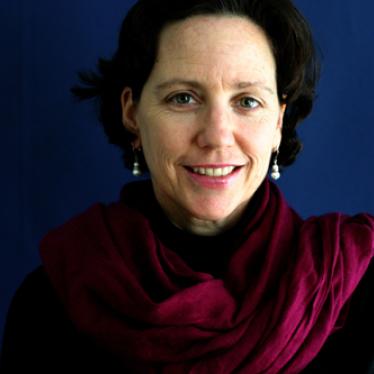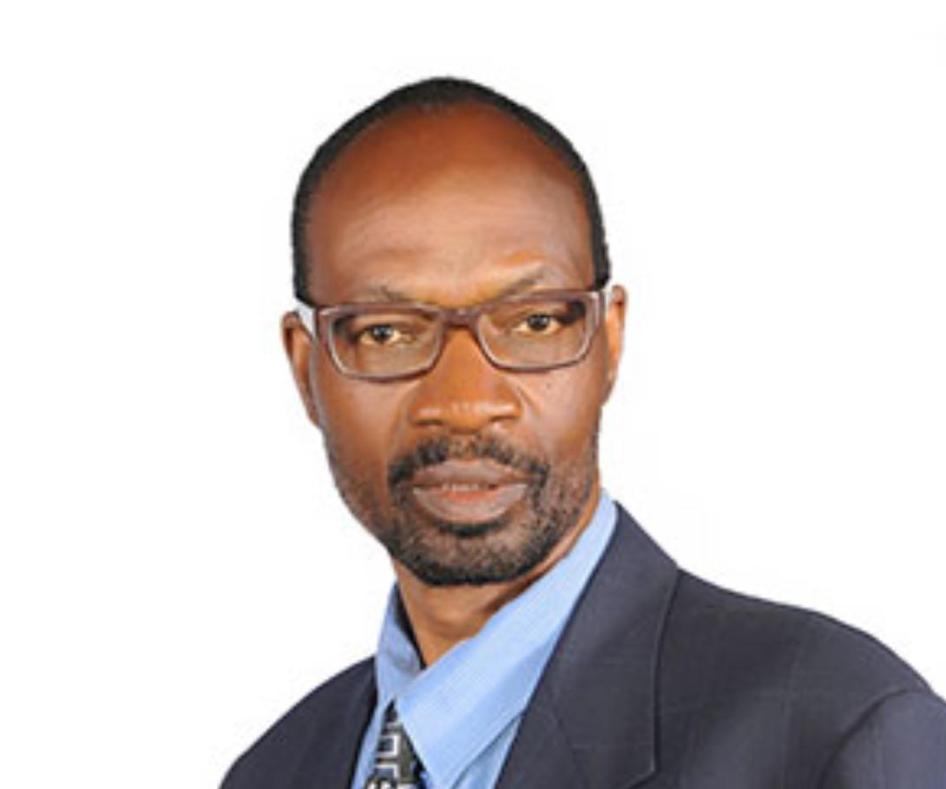We at Human Rights Watch remember Dr. Peter Takirambudde, head of our Africa division from 1996 to 2008, with great respect and affection. We were deeply saddened to learn of his passing on November 9 in his native Uganda.
Peter hired me as the Sierra Leone researcher in 1999, when it was in the throes of a civil war. I remember him for many things: his deep, big-picture analysis of rights abuses and the context in which they happen; his commitment to mentoring the next generation of rights defenders; and his loyalty to his staff. David Buchbinder, our former Chad researcher, put it succinctly: “Peter always saw the big picture and always had your back.”
Under his leadership, Peter guided the division’s research and advocacy through multiple crises, including in Sudan, Sierra Leone, Nigeria, Rwanda, and the Democratic Republic of Congo. Amid these grave developments, Peter considerably expanded the Africa division and its research portfolio, reputation and impact.
“Peter was a warm and brilliant man,” said Rona Peligal, the Africa division’s former deputy director. “He was deeply devoted to his staff and colleagues. He exuded intellectual honesty, didn’t jump to snap conclusions, and read widely, looking for insights and answers.” For those of us fortunate enough to have worked alongside Peter, we will miss a man who, as my colleague Chris Albin-Lackey noted, “was a quiet, thoughtful and unswervingly decent person.”
Leslie Lefkow, who covered the Darfur crisis under Peter’s direction, noted, “Peter was a terrific strategist with a keen eye for the long game… his vision, his loyalty, and his dry wit will always be deeply appreciated.” Maria Burnett, currently East Africa director and formerly based in Burundi, recalled that “Peter had a deft ability to make us all feel connected despite the distance.”
Under Peter, the Africa division’s annual planning meetings included many memorable discussions. Before the researchers delved into our plans to expose war crimes, election violence, and ethnic strife, Peter provided a tour de force analysis of the state of rights on the continent, which included a deep dive into the price of corn, cotton and copper; a discussion of hydro-electric power and water control; and a politico-gossip session on despots and diplomats.
Peter’s point was clear: to understand the mayhem and effectively influence the rights violators and those who embolden them, we as researchers had to do much more than document bad behavior by all sides. We needed to understand the personalities and appreciate the complexity that gave rise to and sustained abuse in the first place.
Peter’s rolodex was full of African academics, ministers, ambassadors, and leaders he drew on for analysis, influence and advocacy. He favored making his points on the importance of respecting rights through humor, metaphors, anecdotes and complex stories – sometimes rather long ones.
In meetings with those responsible for abuses, I preferred making my points through a direct, earnest presentation of violations and why respect for rights mattered. Peter, on the other hand, started off asking about their families and laughing at their jokes, but then, ever so skillfully, drove his points home in a truly nimble way. Over time, Peter earned the respect of many adversaries.
Not a big fan of meetings and management, Peter protected us from internal institutional demands and encouraged us to get out of the office and into the trenches. He clearly wanted more time there as well. In a classic Peter move, one staff member recalled, “He opened our meeting by tapping on a book he was reading, Death by Meeting.”
Another cherished aspect of Peter’s character was his loyalty to his staff. As remembered by Peter Bouckaert, our currect Emergencies director, “Peter always treated his team as his family… In African culture we respect and learn from our elders. I certainly learned a lot from Peter, and what I respected most about him is how much he loved his researchers and looked after them.”
This loyalty extended to younger staff as well. Peter demonstrated his commitment to mentoring the next generation in several ways. He created our African Fellows Program, which gave several young human rights defenders from Africa the opportunity to work from the New York office for a year. He also started an internal mentoring program.
Peter began mentoring Sarah Jackson, formerly an associate for our Great Lakes team, in 2007. “Peter was adamant that junior staff would visit the region that they worked on, something that bucked the trend in HRW at the time,” she said. “This gave me the opportunity to travel to Rwanda… to observe the gacaca courts trying suspects of the 1994 genocide.”
Sarah, who is now Amnesty International's deputy regional director for East Africa, the Horn, and the Great Lakes, noted how Peter continued to mentor her, even after they had both moved on. “As I reflect on the support that Peter gave me, it’s a moment to recommit to making sure I provide such opportunities to younger colleagues to grow, and to do so in his memory,” she said.
After leaving Human Rights Watch, Peter founded and directed the Botswana-based African Human Rights Consortium, which helped train members of civil society from across the continent in human rights investigation and advocacy. Peter was also a lawyer and a well-respected law professor, including at the University of Botswana-Gaborone, where he served as head of social sciences, and at the University of Lund in Sweden. He received a bachelor's degree from Makerere University in Uganda and a doctoral degree from Yale University.
As noted by Kenneth Roth, Human Rights Watch’s executive director, “We remember him fondly for his deep intellectual engagement with African human rights issues, his always-incisive analysis, and his principled and passionate defense of the rights of people throughout the continent. He made a very important mark establishing Human Rights Watch in Africa, and we remain deeply indebted to him.”










